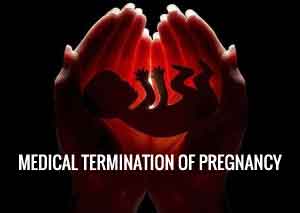- Home
- Medical news & Guidelines
- Anesthesiology
- Cardiology and CTVS
- Critical Care
- Dentistry
- Dermatology
- Diabetes and Endocrinology
- ENT
- Gastroenterology
- Medicine
- Nephrology
- Neurology
- Obstretics-Gynaecology
- Oncology
- Ophthalmology
- Orthopaedics
- Pediatrics-Neonatology
- Psychiatry
- Pulmonology
- Radiology
- Surgery
- Urology
- Laboratory Medicine
- Diet
- Nursing
- Paramedical
- Physiotherapy
- Health news
- Fact Check
- Bone Health Fact Check
- Brain Health Fact Check
- Cancer Related Fact Check
- Child Care Fact Check
- Dental and oral health fact check
- Diabetes and metabolic health fact check
- Diet and Nutrition Fact Check
- Eye and ENT Care Fact Check
- Fitness fact check
- Gut health fact check
- Heart health fact check
- Kidney health fact check
- Medical education fact check
- Men's health fact check
- Respiratory fact check
- Skin and hair care fact check
- Vaccine and Immunization fact check
- Women's health fact check
- AYUSH
- State News
- Andaman and Nicobar Islands
- Andhra Pradesh
- Arunachal Pradesh
- Assam
- Bihar
- Chandigarh
- Chattisgarh
- Dadra and Nagar Haveli
- Daman and Diu
- Delhi
- Goa
- Gujarat
- Haryana
- Himachal Pradesh
- Jammu & Kashmir
- Jharkhand
- Karnataka
- Kerala
- Ladakh
- Lakshadweep
- Madhya Pradesh
- Maharashtra
- Manipur
- Meghalaya
- Mizoram
- Nagaland
- Odisha
- Puducherry
- Punjab
- Rajasthan
- Sikkim
- Tamil Nadu
- Telangana
- Tripura
- Uttar Pradesh
- Uttrakhand
- West Bengal
- Medical Education
- Industry
Woman approaches Bombay HC for terminating 28-week pregnancy

Mumbai: A woman pleading the Bombay High Court to allow her to terminate her 28-week pregnancy on grounds that the foetus has grave medical abnormalities has caught the court in a fix.
The woman, from Mumbai, and her husband have argued that not only will the child be born with abnormalities and face consequent difficulties, but forcing the woman to continue with the pregnancy will also cause her trauma and affect her "mental health".
A bench of justices R M Borde and Rajesh Ketkar are now in a quandary.
The Medical Termination of Pregnancy Act has provisions to allow a woman to terminate her pregnancy even if it has gone beyond the permissible 20-week period if the pregnancy and child-birth poses a threat to the woman's physical health or life, the Act does not deal with the mental health of the woman.
It has no provision to deal with foetal abnormalities either.
The MTP Act permits abortions after consultation with one doctor up to 12 weeks. Between 12 to 20 weeks, medical opinion of two doctors is required. Beyond the 20-week, exceptions are legally permissible only if continuation of the pregnancy poses a threat to the mother's life.
In all such petitions that come before the Bombay HC, the court first refers the case to a medical board of expert doctors for their opinion on whether or not such pregnancy poses a threat to the life of the woman concerned.
Often other benches of the Bombay HC have permitted such petitioners, several of whom were minors, and also victims of rape, to terminate the pregnancy if the board had ruled there exists a risk to the woman's life, or in some cases, if the board affirms that the foetus has irreparable or grave medical abnormalities.
In the present case however, while a board of doctors at the government-run JJ Hospital in the city affirmed in a report submitted on January 2 that the foetus has severe brain deformities, that its stomach is not seen yet and that it also has severe cardiac abnormalities, the report ruled that the pregnancy and the consequent childbirth will not pose any risk to the physical health or life of the petitioner.
The petitioner's lawyer Meenaz Kakalia has urged the court to go beyond the definition of the health and life of the woman and the risks to it as defined under Section 5 of the MTP Act.
She has urged the court to consider the "mental anguish and the trauma that will be caused to the woman in forcing her to undergo the pregnancy, and to give birth knowing that the child will be born with life threatening problems, as akin to the possible harm to her life and her physical being."
The bench, however, is in a fix, as the Ministry of Health and Family Welfare proposed amendments to the Act in 2014 - including introducing the concept of risks to the mental health of the woman and also the idea of substantial foetal abnormalities - in the latter case, a pregnancy can be terminated at any point during the pregnancy - the draft bill with such amendments is yet to be ratified by Parliament.
"You prove to us that the threats to the mental well- being of the petitioner is covered under Section 5 of the MTP Act and only then can we allow the plea. Sadly, while the proposed bill provides for the above concept, it is yet to become a law," the bench said.
Incidentally, during his previous tenure as a judge on the Aurangabad Bench of HC, Justice Borde had permitted a victim of rape to terminate her pregnancy, even though it was beyond the 20-week ceiling and posed no threat to her physical health, after she threatened to commit suicide.
"She said if we don't allow then she will have no choice but to end her life. This was a considerable threat to her physical being, to her life, thus, I permitted it,' Justice Borde said.
The bench is likely to pass an order on the present plea on Tuesday, January 10.


